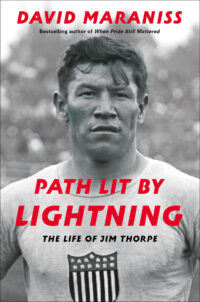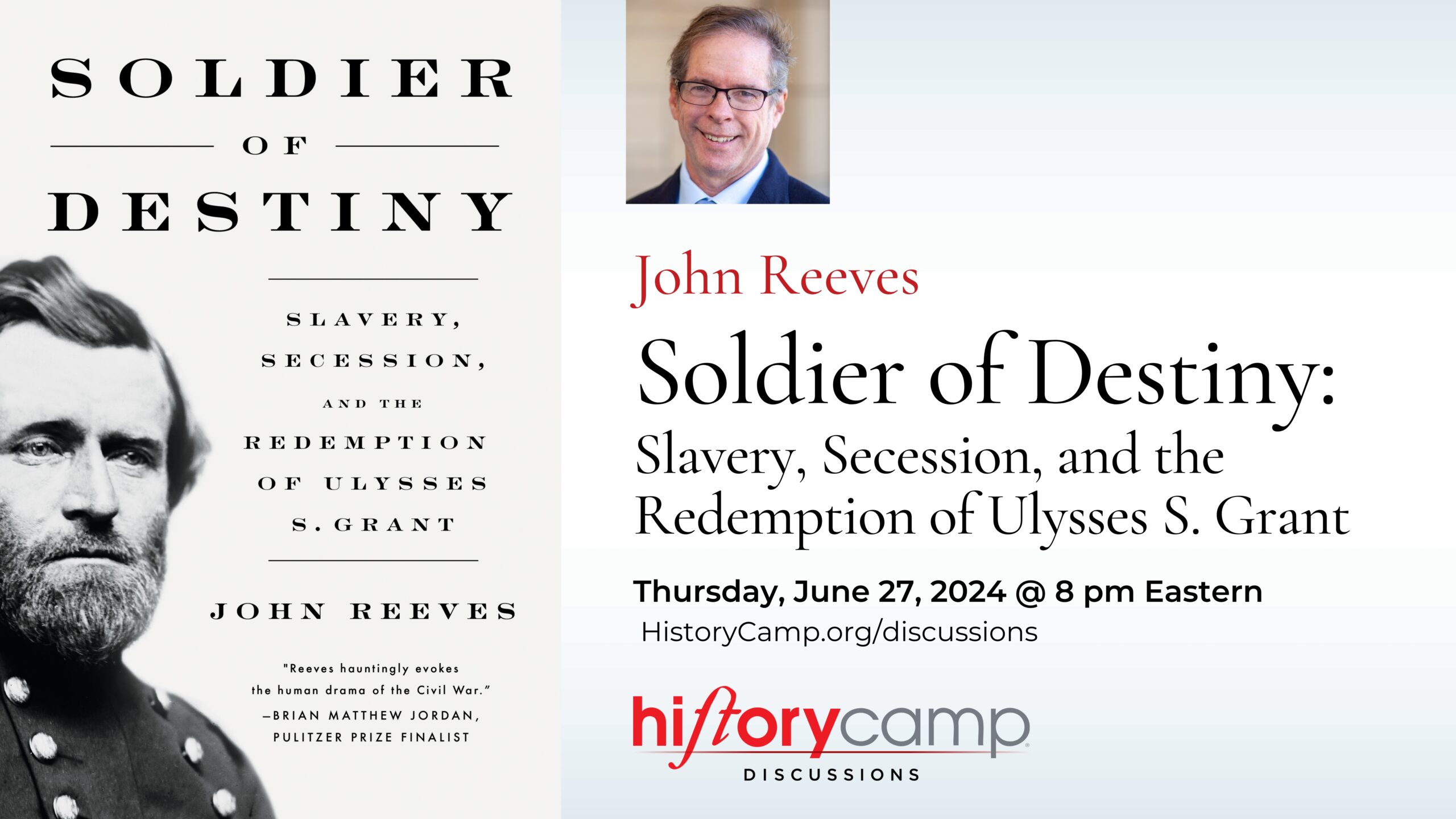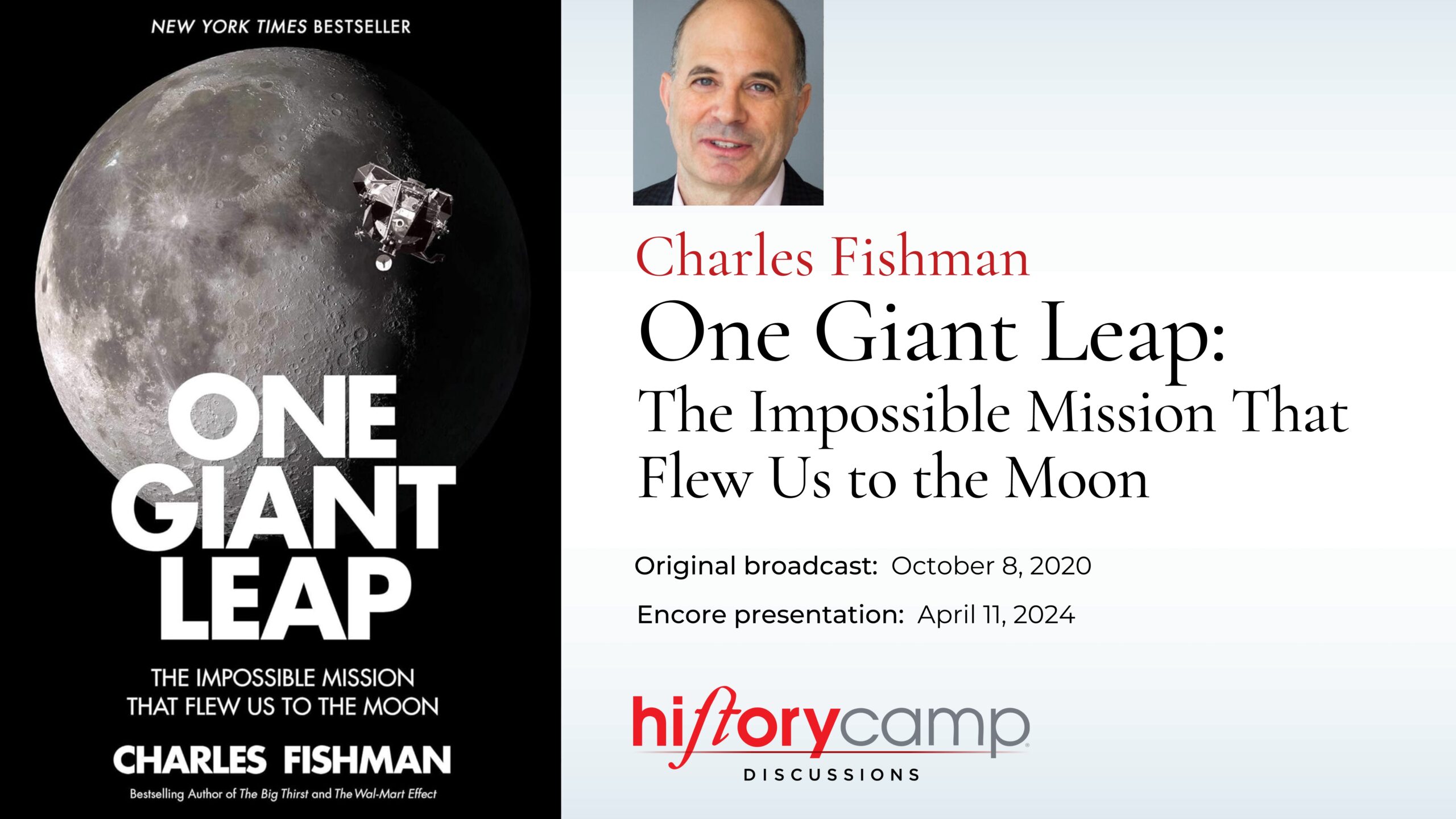David Maraniss
Path Lit by Lightning: The Life of Jim Thorpe
Jim Thorpe was arguably America’s greatest all-around athlete: a gold medalist at the 1912 Olympics in the decathlon and pentathlon; a star on the Carlisle Indian School’s football team and the first class of the Pro Football Hall of Fame; and a major league baseball player for John McGraw’s New York Giants. But despite his vast skills, he struggled his entire lifetime against racism, he was unfairly stripped of his Olympic gold medals, and his later years were troubled by alcohol, broken marriages, and financial distress.
As a member of the Sac and Fox tribe, Thorpe was subject to endless discrimination, condescension, and Indian stereotypes. While at the Carlisle School – whose infamous assimilatory philosophy was “Kill the Indian, Save the Man”—he endured duplicitous authority figures and hard living conditions, but it was also where he transformed from a small boy to a towering athlete in track and field, football, baseball, and basketball. At Carlisle, Thorpe led the football team to championships, most notably by defeating the top-rated Army football team in 1912. (One of the Army players he ran around and over was Dwight D. Eisenhower.) He went on to play for an early professional football team, the Canton Bulldogs, and in 1963 he was inducted into the inaugural class of the Pro Football Hall of Fame. In one powerful chapter, Maraniss deconstructs how and why Thorpe lost his medals after it was revealed that he had played baseball for pay: how an array of powerful officials betrayed him, professing ignorance of his situation to save their own reputations, including Coach Pop Warner and superintendent Moses Friedman at Carlisle, the head of the Amateur Athletic Union, and the president of the International Olympic Committee.
Thanks to his Olympic and football career, Jim Thorpe became world famous, although his identity and culture were frequently diminished. And unfortunately, he never achieved financial success commensurate with his fame. Professional sports during that era didn’t pay nearly as well as today, and most of his life he did odd jobs roaming from state to state. He also took bit parts in Hollywood (he became a leader in lobbying the industry to hire real Native Americans for Indian roles) but even the film of his own life starring Burt Lancaster as Thorpe failed to improve his fortunes. Thorpe also battled alcoholism – some of the bar anecdotes Maraniss shares have a larger than life quality, but sadly his drinking contributed to the failure of his first two marriages.
In 1953, Thorpe died of a heart attack in a trailer home. Rather than have him buried per his will in his home state of Oklahoma, his third wife essentially auctioned off his body to a town in northeastern Pennsylvania that was willing to change its name to Jim Thorpe. He was laid to rest in a place he had never even seen. He remains there to this day, in a grave in Jim Thorpe, PA.
Today Thorpe is more myth than man, a brief lesson in 4th grade history class about the Native American man who claimed gold at the Olympics. Maraniss was encouraged by Indigenous academics and activists to take a deeper look at the Jim Thorpe story. This biography aims not only to recapture the drama and pathos of the athlete’s career but also to consider it in the context of the mistreatment and manipulation of American Indians during Thorpe’s lifetime. Known for his meticulous research, Maraniss paints an unforgettable portrait of Thorpe by drawing on letters, diaries, oral histories, contemporaneous newspaper accounts, and primary documents from 22 archives.
[Recorded on 16 February 2023]


David Maraniss (DavidMaraniss.com) is an associate editor at The Washington Post and a distinguished visiting professor at Vanderbilt University. He has won two Pulitzer Prizes for journalism and was a finalist three other times. Among his bestselling books are biographies of Bill Clinton, Barack Obama, Roberto Clemente, and Vince Lombardi, and a trilogy about the 1960s—Rome 1960; Once in a Great City (winner of the RFK Book Prize); and They Marched into Sunlight (winner of the J. Anthony Lucas Prize and Pulitzer Finalist in History).






























